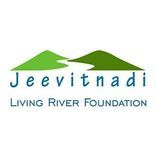
© 2026 Made for Planet • Privacy Policy • Terms & Conditions
Platform by Mission Sustainability
All categories Water conservation Jeevit Nadi


Pune, Maharashtra, India
Add a review
Jeevitnadi is dedicated to the clean-up, restoration, and preservation of rivers. As a part of the Jeevitnadi Living River Foundation, they firmly emphasize the crucial role of active citizen participation in the revival of rivers. Jeevitnadi recognizes that the task of restoring rivers cannot be achieved solely by organizations or authorities but requires the collective effort and involvement of the community. Jeevitnadi focuses on engaging citizens and empowering them to become stewards of their local rivers. They work towards creating awareness about the importance of river conservation and organizing community-driven initiatives for clean-up and restoration activities. By involving citizens directly, Jeevitnadi promotes a sense of responsibility and ownership among individuals, encouraging them to take an active role in preserving and rejuvenating their rivers. Through their work, Jeevitnadi aims to foster a deep appreciation for rivers and their significance in sustaining ecosystems and communities. By advocating for citizen participation, they inspire a sense of environmental consciousness and encourage a culture of active involvement in river conservation efforts. Overall, Jeevitnadi's approach to river clean-up, restoration, and preservation revolves around the belief that the active participation of citizens is essential for the successful revival of rivers. Their efforts to engage and empower communities contribute to a collective commitment to protect and restore these vital water bodies, ensuring their longevity for future generations. Jeevitnadi is the result of this river protection program. Under the name Jeevitnadi - Living River Foundation, Jeevitnadi was registered as a section 8 corporation in September of 2016. In addition to working on a variety of projects, Jeevitnadi is one of the founders of the Ramnadi restoration mission.
Shailaja Deshpande
Founder - Director
Operating since 2016
11-50 Members
Eco-system
Cities and Towns
Sectors
Environmental Services
Suitable for
Type of solution
Coordinating and directing routine clean-up campaigns to remove trash and debris from the Mutha River's banks, boosting the river's visual appeal and water quality. To evaluate the condition of the river and pinpoint problem areas, routine monitoring of water quality measures such as pH, dissolved oxygen, turbidity, and pollution levels should be carried out.
Certificates & compliances
1 OEKO-TEX Standard 100
Support concious people make more insightful choices
Found any error in information about this organisation?
Similar companies

CLEAN International
Ventura, California, USA
CLEAN International works everyday to remove barriers to access to safe sanitation and clean water. The company mobilizes, implements, and evaluates innovative, environmentally sustainable solutions to sanitation and water-related needs in order to improve the quality of life, overall health, and educational and economic opportunities of individuals worldwide.

Surfers Against Sewage
United Kingdom
Surfers Against Sewage projects target coastal environmental issues including marine litter, sewage pollution, climate change, toxic chemicals, shipping, industry and coastal development. They aim to create measurable improvements in the state of our oceans, waves and beaches through changes in public behaviour, government policy and industry practices.

NeeRain
Ahmedabad, Gujarat, India
NeeRain Rooftop Rainwater Filters provide a cost-effective and efficient method for homeowners to harvest rainwater from their rooftops for use in borewells or tanks. The NeeRain rooftop rainwater filter is an effective, no-water-loss filter with microfiltration capacity of up to 200 microns. It captures rainwater without human interaction and requires no energy, moving parts, consumables, or upkeep. It can be placed on a wall or downtake pipe and installed in under 2 hours by a semi-skilled plumber. They have their own rooftop filters such as Neerain Rooftop Rainwater Filter, NeerainUltra Rooftop Rainwater Filter, Neerain+Rooftop Rainwater Filter, Built-in Flush Device. Neerain rooftop rainwater filter wins CII's national award for excellence in water management 2022, featured in Doordarshan, DD India, DD News, and DD Girnar.

Kritsnam Technologies
Hyderabad, Telangna, India
Kritsnam technologies is launching Dhaara, a water budgeting tool that allows businesses to identify water risks and digitally manage their water footprint, encouraging a safe future for water.sustainably for industrial, commercial, agriculture and drinking purposes. They built compact and low-power consuming IoT enabled instruments to mine the water data and provide useful insights to improve water use efficiency. Dhaara allows managers to first estimate an overall water budget plan for their organisation and then track their actual water use in relation to that plan. It assists them in identifying gaps and possible flaws, which finally leads to remedial actions.

Rain Water Solutions
Raleigh, North Carolina, United States
Rain Water Solutions manufactures high-quality rain barrels and partners with cities, nonprofits, and communities to promote rainwater harvesting, reduce runoff pollution, and encourage sustainable water use through education and conservation programs.